Gallery
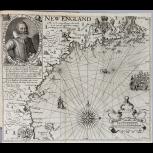 The Generall Historie of Virginia, New-England, and the
Summer Isles
The Generall Historie of Virginia, New-England, and the
Summer Isles
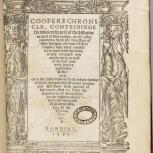 Coopers Chronicle, Conteininge the Whole Discourse of the
Histories (Online exclusive)
Coopers Chronicle, Conteininge the Whole Discourse of the
Histories (Online exclusive)
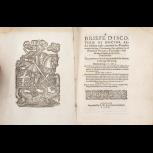 A Briefe Discouerie of Doctor Allens Seditious Drifts
(Online exclusive)
A Briefe Discouerie of Doctor Allens Seditious Drifts
(Online exclusive)
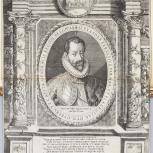 Annales, or, The History of the Most Renowned and
Victorious Princesse Elizabeth...
Annales, or, The History of the Most Renowned and
Victorious Princesse Elizabeth...
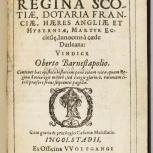 Maria Stuarta, Regina Scotiae, Dotaria Franciae, Haeres
Angliae et Hyberniae...
Maria Stuarta, Regina Scotiae, Dotaria Franciae, Haeres
Angliae et Hyberniae...
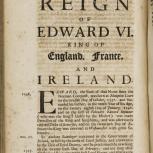 Hibernia Anglicana
Hibernia Anglicana
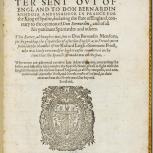 The Copie of a Letter Sent out of England to Don
Bernardin Mendoza...
The Copie of a Letter Sent out of England to Don
Bernardin Mendoza...
Henry VIII’s decision to take England out of Catholic Europe—arguably the first ‘Brexit’—had dramatic repercussions on its place in the world in terms of trade links, military power, diplomatic influence, and within the emerging ‘new world’. European alliances and centuries-old enmities were redrawn according to new religious divides, and closer to home the battle between Presbyterianism and Catholicism in Scotland had dramatic political consequences for Anglo-Scottish relations. Nowhere was this more keenly felt than London—the heart of diplomacy and trade.
Mary Queen of Scots was seen as a potential successor to Elizabeth and champion for the Catholic counter-Reformation. Her execution on 8 February 1587 paved the way for the accession of her Protestant son James, uniting the crowns of two countries that had intermittently been at war for centuries. This was a seismic change to the political landscape and had a major impact on London. Increasingly it became the fulcrum of the royal court for both kingdoms, and therefore the location of the attempted Catholic gunpowder plot to assassinate the new king and his parliament in 1605.
The Reformation had an even more divisive impact on Ireland, with Protestantism limited in its spread but claiming a monopoly of political power, which led to bitter divisions within society. The existence of a large Catholic population so close to England was a major concern for Tudor and Stuart monarchs, who feared that Ireland could be used as a springboard for rebellions or foreign invasions. Various military interventions in Irish affairs on religious grounds caused deep-rooted resistance to English rule and a Protestant-Catholic schism that can still be felt today.
The new world order manifested itself most dramatically in England’s relationships with France and Spain, as centuries of diplomatic alignment were reversed. For example, English support for Protestants rebelling against their rulers in the Spanish-controlled Low Countries also led to growing political tension between the two former allies, England and Spain, now vying for supremacy of the high seas and control of new world riches flowing from colonies in north and south America.
Henry VIII had massively expanded the royal navy, largely in response to the very real fear of invasion from Catholic states after the break with Rome. London was one of the key sites that was chosen to pioneer new naval technology, with development of the docks at Deptford. The defeat of the Spanish Armada in 1588—an attempt to reconvert England to Catholicism—ushered in a golden age for England as a maritime nation. By the time the Mayflower sailed in 1620, Protestant beliefs were very much in the ascendant, exported across the world from English ports.
Capturing London was one of the prime objectives of the Spanish Armada because the city was becoming the heart of a new trading empire. Start-up commercial enterprises such as the Muscovy Company (1555) and the East India Company (1600) originated in London, bringing commodities such as cotton, silk, tobacco, tea and opium into the port and generating great wealth for the city.
